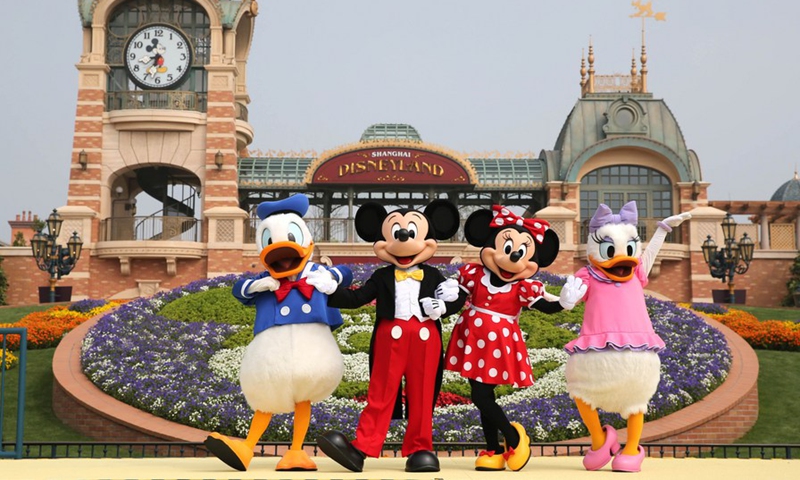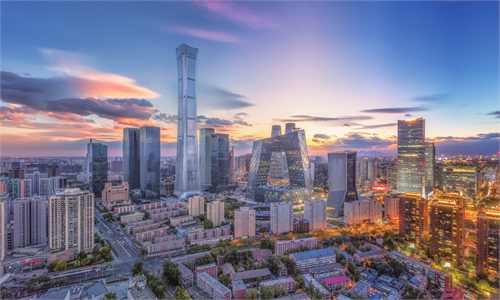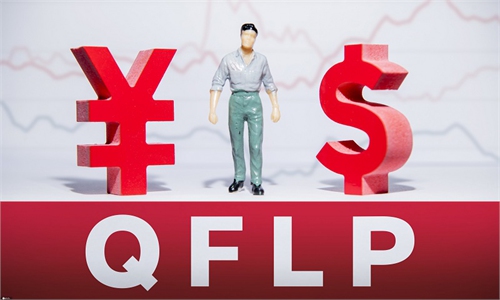US entertainment companies with investment in China see shares rise after investment cap for foreign investors is relaxed

Performers greet tourists at the entrance of the Shanghai Disneyland theme park in east China's Shanghai, May 11, 2020. Photo: Xinhua
Major US entertainment companies that have invested in China's vast entertainment market saw their shares rise in earlier market trading on Tuesday after China's Ministry of Culture and Tourism (MCT) relaxed ownership limits to allow 100 percent foreign ownership of Chinese entertainment venues.
Shares of Walt Disney Company, which runs a theme park in Shanghai, rose 1.14 percent at the market's opening on Tuesday to $180.8 per share.
Comcast Corporation, which owns the Universal Studios theme park in the Chinese capital, saw its shares rise by 0.1 percent to $57.39.
Shares of AMC Entertainment Holdings Inc, the movie theater chain, jumped 15% on Tuesday. This rise in stock prices comes after China's Dalian Wanda Group sold most of its AMC shares.
On Monday, the MCT announced in a circular about regulatory changes on entertainment venues, that China will give foreign investors more room for investment by removing a previously required cap in ownership, in accordance with the nation's broader move to cut red tape.
In a supplementary document posted together with the announcement, the MCT stated that under the new regulation foreign investors will have total ownership of new entertainment venues.
Foreign investors need to submit their application for approval to the culture and tourism authorities at the provincial level with the same requirements and procedures as for Chinese investors.
However, the MTC noted that relevant requirements and procedures still need to be clarified further.
The entertainment industry in China is offering exciting and promising opportunities for investment fueled by China's growing middle class consumers.
Broader entertainment services that include cinemas, Karaoke bars, television, literature, art, fashion, internet and gaming are performing at a much faster rate than the overall economy. The sector currently represents at least 5 percent of China's total GDP, according to a research report by Maxxelli Consulting.



